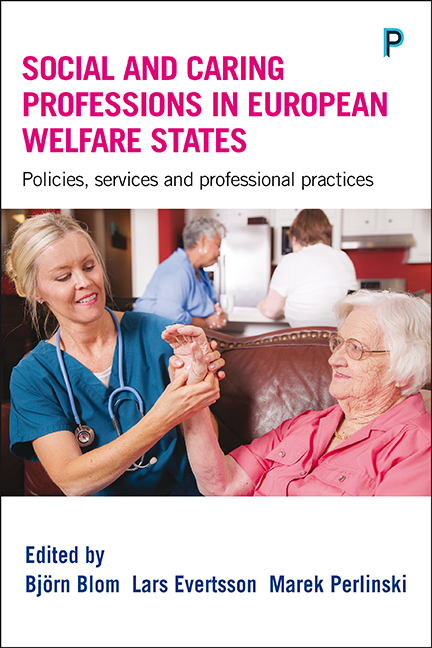 Social and Caring Professions in European Welfare States
Social and Caring Professions in European Welfare States Book contents
- Frontmatter
- Contents
- List of tables and figures
- Notes on contributors
- Preface
- one European social and caring professions in transition
- Part 1 Knowledge, reflection and identity in the social and caring welfare professions
- Part 2 Control, regulation and management
- Part 3 Collaboration, conflict and competition
- Part 4 Assessment, negotiation and decision making
- Index
eight - Professional boundary crossing and interprofessional knowledge development
Published online by Cambridge University Press: 05 April 2022
- Frontmatter
- Contents
- List of tables and figures
- Notes on contributors
- Preface
- one European social and caring professions in transition
- Part 1 Knowledge, reflection and identity in the social and caring welfare professions
- Part 2 Control, regulation and management
- Part 3 Collaboration, conflict and competition
- Part 4 Assessment, negotiation and decision making
- Index
Summary
Introduction
A significant trait of modern societies is the increased organisational specialisation of welfare services, which in turn has resulted in increased professionalisation, that is, a greater number of professionals involved in the production of welfare services (Meads and Ashcroft, 2005). This growing specialisation and professionalisation, which on one hand has led to more advanced services, has also resulted in fragmentation and need for coordination between services in order to provide adequate and holistic efforts when responding to service users’ complex needs (Arnkil and Seikkula, 2015). Today the service delivery system is faced with problems concerning the division of labour, coordination of services, maintenance and development of staff competence, and improvement of service effectiveness and outcomes. Specialisation often necessitates collaboration between different actors in order to achieve a comprehensive view of citizens’ complex problems.
The aim of this chapter is to examine how interprofessional knowledge is developed when crossing boundaries, illustrated by two cases in social work in the domain of child welfare in Norway and Finland. We have chosen these two cases to provide analytic description of innovative knowledge production processes in professional practices and the complex boundary crossings involved. The two cases represent the field of child and youth welfare, a field that is under much pressure both on a national and on an international level.
Interprofessional practices
There is an obvious need for developing multi- or interprofessional services that address complex problems effectively. By way of example, doctors, social workers and other welfare professionals in the welfare services need to find new ways of collaborating to be able to solve complex cases. To ensure optimal outcomes for service users in an uncertain, evolving environment, it is necessary to enhance professional knowledge and skills in boundary crossing and increase efforts to adapt to change. These challenges certainly involve European welfare states and highlight the ultimate purpose: ‘to assure universal coverage of high quality comprehensive services that are essential to advance opportunity for health equity within and between countries’ (Frenk et al, 2010), mentioning improved team work and decreased professional tribalism as important issues.
It is claimed that the prevalence of difficulties of children and young people is high, and that 15-20% of all children have psychiatric problems that influence their level of functioning (NOU, 2009, p 18).
- Type
- Chapter
- Information
- Social and Caring Professions in European Welfare StatesPolicies, Services and Professional Practices, pp. 115 - 130Publisher: Bristol University PressPrint publication year: 2017
